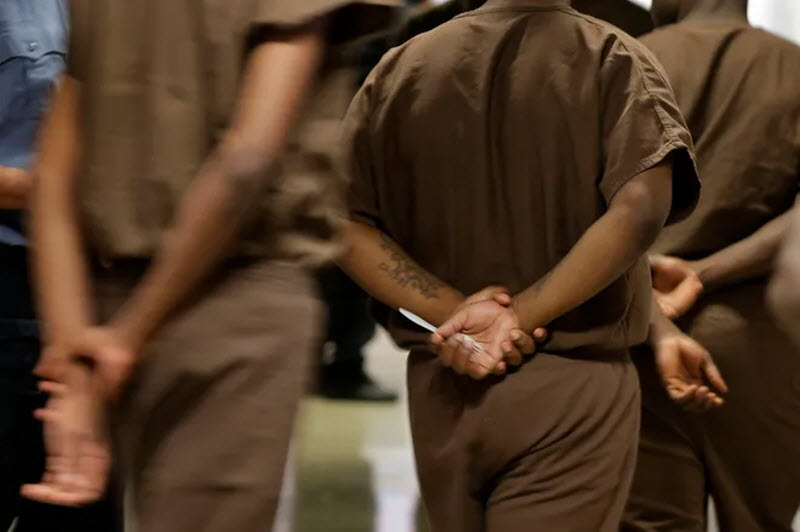

 By Ralph Taylor
By Ralph Taylor
In 2020, juvenile offender parole VA Code 53.1-165.1 and 53.1-154 were amended to Virginia parole statute by legislative mandates due to the retroactive S.C.O.T.U.S cases that ordered all states to conform to the retroactive holdings that were set forth in the precedent cases. Upon legislatures amending the original adult parole statue to add mandatory juvenile offender parole hearings, a new problem arose. They did not add the procedural protection requirements held by S.C.O.T.U.S. As a result, juvenile offenders are wrongly adjudicated, classified and judged as if they were adults upon committing their crimes.
We are not afforded the retroactive procedural protection safeguards that the parole board is ordered by the S.C.O.T.U.S. to follow. For example, procedural protections set forth by the S.C.O.T.U.S. are 1) a sentencer must take into account “scientific research on recidivism of juvenile offenders which support juveniles outgrowing criminal behavior, most teens risky or antisocial behavior cease by the age of 25 as we mature and identity becomes settled; 2) they must take into account procedurally that most juveniles would no longer be a public safety risk once they reach their mid twenties, let alone thirties, forties, fifties or even sixties; and 3) they must take into account  procedurally that there are essential differences in youth than adults for culpability purposes.
procedurally that there are essential differences in youth than adults for culpability purposes.
Compared to adults, juveniles have a lack of maturity and an underdeveloped sense of responsibility; juveniles are more vulnerable or susceptible to negative influences and struggle to find their identity because their brains are not fully developed at the time of committing the crime.
Continuing, 4) they must take into account brain sciences that continue to show developments in psychology occur as juveniles mature with age. Brain science shows a fundamental difference between juvenile and adult minds. For example, juvenile brains lack the ability to resist impulses, control emotions, and fully comprehend risks, benefits and consequences as an adult would. Juveniles cannot fully envision the future consequences of their actions because they lack the development of an adult.
Then, 5) the 8th Amendment forbids any parole board acting as a discretionary sentencer from not taking actions to research juveniles’ lessened culpability, greater capacity for change and individual characteristics before imposing the harshest sentences. Quoting Graham, 560 U.S. 58, 74; and 6) they must take into account procedurally the parole board cannot have juveniles classified as the worst offenders that pose a danger to society, not even at the start of trial, let alone after 22 years in incarceration because a juvenile’s brain was not fully developed neurologically upon committing the crime.
Yet, is denying parole to me as a juvenile for two years straight classifying me as the worst offender? Especially when citing reasons such as violent juvenile history, crimes committed when juvenile, the board considers me to be a danger to society, due to circumstances of juvenile offenses. Denied because release at this time would diminish the seriousness of crime.
And, 7) retroactive procedural protections set forth by the S.C.O.T.U.S. state that juveniles cannot with reliability be classified as the worst offenders because juveniles irresponsible conduct is not morally reprehensible deserving criticism and condemnation as adults. The list goes on and on with procedural protection requirements that should be followed but are not.
I served 22 years incarcerated. I started out getting into trouble but as I matured and my mind developed I changed. I got back into school, earned my G.E.D and even earned a diploma with highest honors as a paralegal. I mentored troubled youth in prison and earned completion certificates in programs ranging from Breaking Barriers of drug and alcohol to Thinking for a Change and Production Citizen program and many more. To top it off, I haven’t had so much as an institution write up or charge from a CO in over 12 years.
All of this shows I foster rehabilitation & maturity from when I was arrested at 16. Yet still, every time I go to parole, the board refuses to acknowledge my change for the better. The parole board doesn’t even follow the right procedures; instead, they deny my parole despite my many attempts to atone for my juvenile crimes. Isn’t the whole point of prison to correct you in the department of corrections? Then once someone gets set straight and did enough time, set them free to show that they are reformed.
Especially if their brain was not fully developed as a juvenile upon committing crime, especially after 22 years of paying your debt to society via serving time. Is who they are now the same as who they were 22 years ago? But they filled the VA parole board with police officers, prosecutors, widows of murdered police officers. How is this not bias or conflict of interest in fairness & justice? I live feeling hopeless and discouraged!





